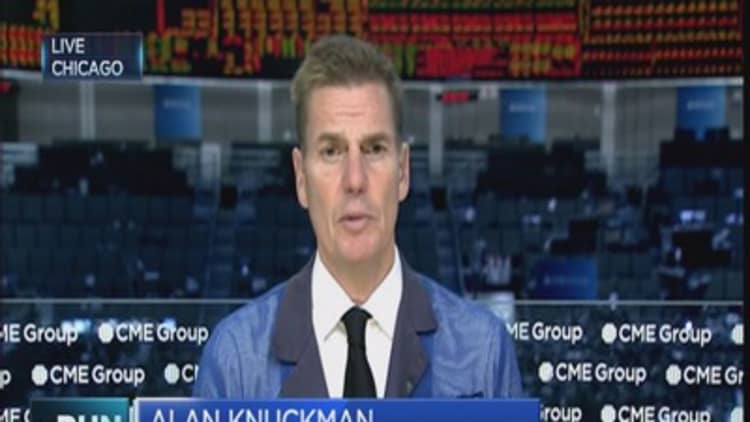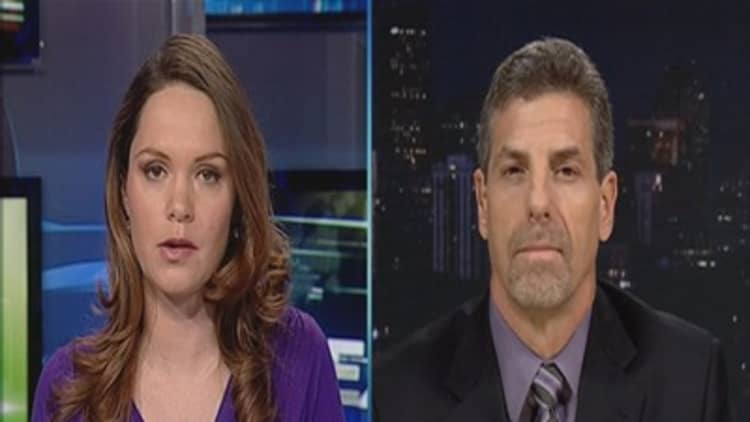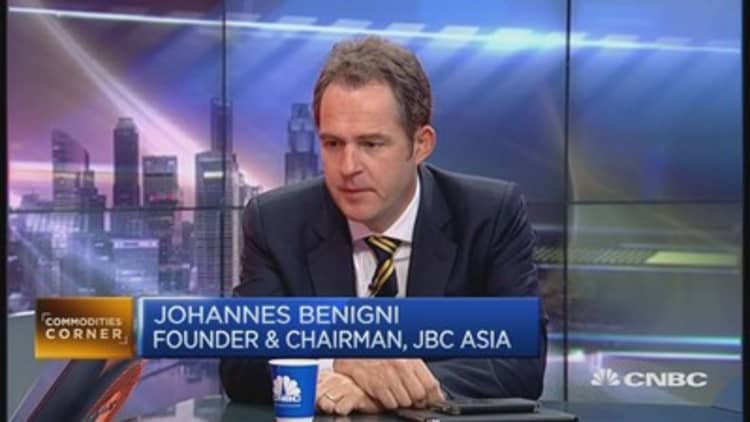U.S. oil ended higher on Monday despite worries about the economic impact of Friday's deadly attacks in Paris and a global glut of crude supplies.
France carried out air strikes overnight in Syria against Islamic State, which claimed responsibility for the Paris attacks. But fears that geopolitical tensions would threaten global oil supplies were outweighed by the expectation that the Paris attacks would crimp economic activity in Europe, in part by reducing travel on the continent.
"Friday's dreadful events and their aftershocks all threaten economic growth; hence the market is coming lower," PVM Oil Associates analyst Tamas Varga said.
Read More How ISIS attacks could affect Saudi oil production
Front-month Brent crude prices were up 16 cents at $44.63 a barrel at 2:36 p.m. EDT. U.S. crude futures settled up $1, or 2.45 percent, at $41.74 a barrel, after earlier falling toward $40, a key milestone for the oil market that once breached could see oil fall further, to lows not seen since 2009.
The failure to fall below $40 on Monday lead to some technical buying in U.S. crude, traders said, bolstered by stock increases on Wall Street.



Oil prices last week racked up their biggest weekly losses in eight months, pressured by swelling storage of crude on both land and sea.
On Monday, OPEC said the average export price among member countries fell to $39.21 a barrel as of Friday, breaching the $40 level for the first time since 2009, Dow Jones reported.
In the face of an oversupplied market, OPEC has maintained a policy of keeping oil output steady in order to defend market share, rather than cutting production to prop up prices.
Read MoreOp-ed: Why oil could rally big in 2016
An OPEC delegate from a Gulf producing country said he believed that in the mid-term oil prices could get some support due to rising tensions especially if the international community takes more steps to reduce smuggling of oil and hits oil facilities under Islamic State's control in Syria and Iraq.
Many analysts also believe that prices will remain subdued because of abundant stocks of oil and slowing economic growth.
"Our outlook is skewed negative into (the first half of next year). Macro headwinds remain, crude oil inventories are building," Morgan Stanley said.
Oil prices have dropped more than 60 percent since June last year as high production and inventories have coincided with an economic slowdown in Asia, particularly in China but also Japan, which slipped back into recession in the third quarter.
"That both crude oil and combined crude and product stocks are near record levels is a reason for concern," Barclays bank said in a research note.
Read MoreOil price collapsing, could set new low
Baker Hughes data showed the first rise in the U.S. oil rig count in 11 weeks last Friday, while the International Energy Agency said there was a record 3 billion barrels of crude and oil products in tanks worldwide.
The oil in storage is comparable to a months' worth of global oil consumption.
— CNBC's Tom DiChristopher contributed to this report.

